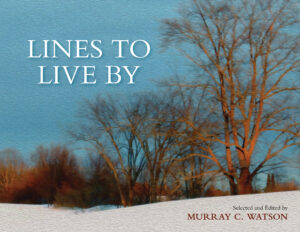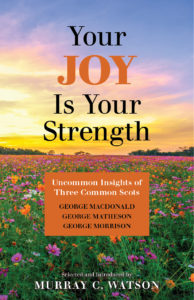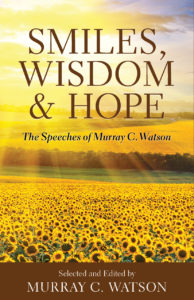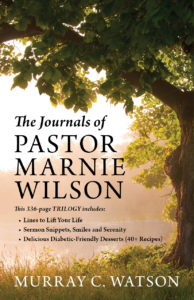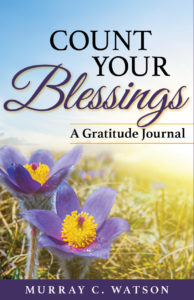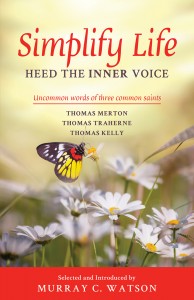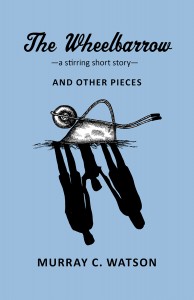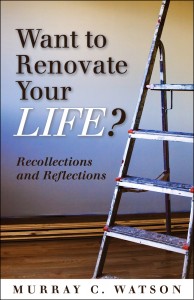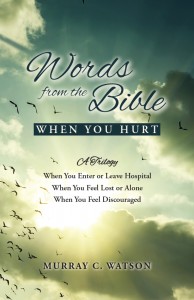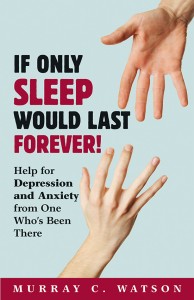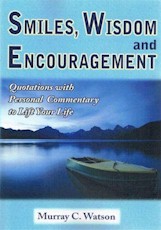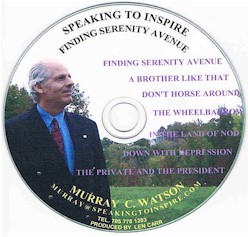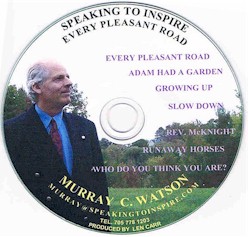What Would You Like for Christmas?
“What would you like for Christmas, Dad?” my daughter asked me. When I said I didn’t need anything, not wanting her to feel obligated, she insisted and asked about books. I immediately thought about George MacDonald and said if she was willing to go through Abe Books online (most of MacDonald’s 50 books are out of print), I’d come up with a short list from which she might pick one.
If you haven’t read MacDonald yet, and would like to start, three of his novels that jump to mind are The Shepherd’s Castle, David Elginbrod, and The Maiden’s Bequest — originally titled Alec Forbes of Howglen. (Other titles include Wilfrid Cumbermere; The Portent; The Fisherman’s Lady.)
If you’re anything like me, you’ll want to avoid getting slowed down by the Scottish dialect. To accomplish this, be sure to ask for versions that have been edited. Several editors have re-written these books, including Michael Phillips of Eureka, California, but any edited version will be more readable than an original. At least they are for me!
The writer C. S. Lewis (The Chronicles of Narnia) said when he read MacDonald, he felt cleansed. That, besides the fact his books are so true to human nature, must be one reason I continue to find them so attracting. In fact, it was while reading one of his novels — The Lady’s Confession if I recall correctly — the year after my mother died, that I knew I had to deal with something in my past.
Forty years earlier, when I was 21 and in my first year of teaching, in the little town of Marlbank, near Tweed, Ontario I had recommended one of my students be expelled. Recommending he be expelled was legitimate, as I felt he constituted a danger to me and the class. What was not legitimate was exaggerating his behaviour — essentially lying about him — in court, to make it stick.
And it did stick. So did my guilt. For forty years. Then I worried how he was, how he might’ve ended up as a result of what I had done to him. Where was he? Was Billy still alive? When I set out to find him, on Groundhog Day 2005, and finally dealt with it, asking his forgiveness, which he readily granted, the black cloud I used to see in the mornings, lifted.
After meeting George Macdonald, Mark Twain said MacDonald “had the face of Christ.” Which means, I suppose, that in his physiognomy he saw goodness. (One thing that indirectly led the worldly Mark Twain to meet the saintly MacDonald was the fact that the Clemens’ little daughter, who had died young, had always carried a copy of MacDonald’s At the Back of the North Wind around with her throughout the house.) What underlies goodness and cleanliness? Is it not innocence — the mark of a little child? A little child saying a prayer at bedtime? Except you be changed, and become as a little child, you cannot enter the kingdom of God. For what adults, like children, do not need that same feeling of innocence when they lay their heads on their pillows — whether it’s at the end of our 24-hour day, or the day of our lives?
How? By clearing the deck of guilt. Simply by confessing, like me, and trying to make restitution to the one wronged. Then by living honestly and doing kind deeds during the day to help others.
I believe what C. S. Lewis said about MacDonald was true, that he is not the best writer. But, as Lewis also implied, I agree he still writes the best books. For MacDonald’s goal went far beyond his craft. He saw the reader. And he knew it was in the momentary decisions of that flesh and blood human being, that the momentous decisions of life would be being made, and that is where he wanted his impact to fall.
“What would you like for Christmas?” my daughter asked me. I guess my honest answer is “Another novel by George MacDonald.” What I wish for myself, I wish for you — and those you love. If you said to me, “What can I get for Christmas?” I’d be thinking, ‘Why not go to a used bookstore, or Abe Books online (or other used book websites), or even to the inter-library loan department of your local library (ILLO) and get your hands on one of George MacDonald’s novels.’ I believe you’ll be glad you did. For is there anything more valuable on Christmas morning — or any morning — than cleanliness, innocence, goodness?
What would you like for Christmas?
____________________________________________________________________________________________________________________________
Murray noticed, after his first book — Smiles, Wisdom and Encouragement: Quotations with Personal Commentary to Lift Your Life — was published, that it contained more quotes from George MacDonald than from any other individual. Murray has detailed in Steel Buggy Wheels on a Hard Dirt Road the day he set out to find Billy, his former student; a day in which he saw glistening sun, felt dark clouds of cowardice and doubt closing in on him, and finally heard himself singing a song he hadn’t heard in years. If you would like him to deliver a speech to your group on this, or any related topic, please contact him.
